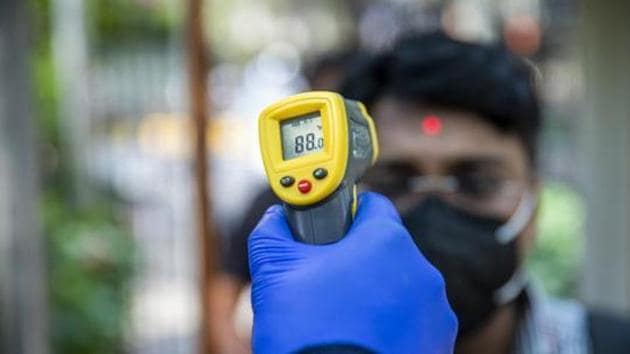Covid-19: How the crisis can help businesses successfully reorient human interactions
The coronavirus crisis has reminded humanity that no amount of planning, forecasts and analysis are foolproof. But it is often a crisis that brings out the best in us
The primary casualty of the coronavirus pandemic is confidence. A thorough cessation of any degree of certainty in the medium- and long-term socioeconomic activity is causing deep resets across the business landscape. At the heart of this crisis is “social distancing”, with everything else being secondary. As a consequence, human interactions are undergoing a change, and, with it, interpersonal activities are getting reformed. Whether it is politics, governance, legal deliveries, education and learning, or business activities based on networking and relationship building, all are changing irrevocably.

It is in this context that modern industries and business activities and manufacturing need innovative solutions and radical outlooks to not only ride out the virus storm but remain strong in the recovery as well as the growth phase.
Since the Covid-19 outbreak has imposed a new normal on us, it is important that businesses too consequently find their own new normal. Here, the direct selling industry, being so inextricably human networking-based, has to reinvent itself around this new imperative. There are three broad mindset change directions that may help organisations to maintain business continuity during and after these trying times.
First, the technology must be fully and creatively leveraged. While digital and virtually addressable solutions and tools are in abundance, the mindset to let them overwhelm human interaction is missing. The mindset change here relates to pervasive adoption and scaling up the reach. For instance, virtual seminars, e-trainings, and on-line dealer meets which can involve even 200-300 attendees could become the future order.
In order to overcome the limitations of social distancing, tools such as those available for doing routine meetings must be fully used. This can also lead to the introduction of more sophisticated technologies that enable near-life interactions. In fact, an added advantage of such adoptions at work would be reduced commuting needs in an already overcrowded world. It would be a great move toward whittling carbon footprints and cleaning up our cities’ foul air. The reduction in air pollution in metro cities during lockdown already echoes this potential gain.
Second, a nuanced adoption of what is termed as “proximity quotient” can make all the difference in our interactivity mores. Expect people to ask to stay at a safe “working distance” in industries ranging from manufacturing to services to information technology.
Last, a defining change for industries must be the adoption of better meeting efficiency standards. It would be useful to get into the discussion, talk straight, and go out with a quick, useful conclusion. Efficiency will rise, as will bottomlines.
We have learnt to deal with a volatility, uncertainty, complexity and ambiguity (VUCA) world. This is what has put Indian leadership at the top of global companies such as Google, Pepsi and Microsoft. Indian business leaders possess the resilience and adaptability to deal with a world full of unknown variables. As change stalwarts, Indian entrepreneurs are savvier than most in dealing with uncertainty and challenges. The sheer diversity of the Indian market is a powerful teacher. Thus, in the direct selling business, where every member is verily an independent owner and a businessperson rolled into one, we can see this rapid adaptability to new realities.
Extraordinary circumstances require extraordinary measures. It is often a crisis that brings out the best in us. The coronavirus crisis has reminded humanity that no amount of planning, forecasts and analysis are foolproof.
Gautam Bali is managing director, Vestige Marketing Ltd, a leading direct selling company dealing in health and wellness products
The views expressed are personal






